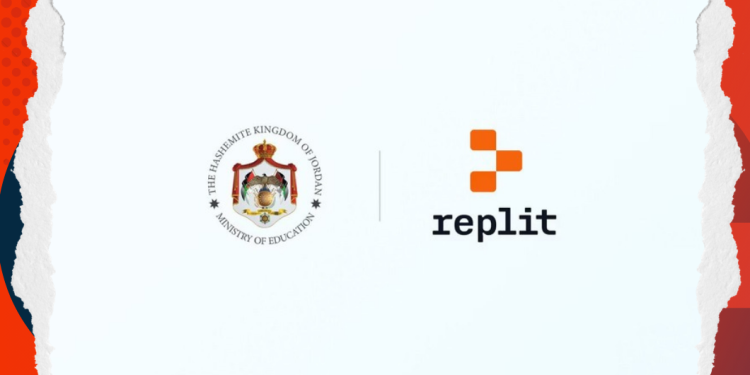Jordan has rolled out “Ajyal,” a unified national digital education platform, alongside “Siraj,” an AI-powered learning assistant that already serves over 100,000 students in its pilot phase. The government plans to expand these tools to reach 1.6 million students and 90,000 teachers across all public schools by early 2026.
Jordan’s AI Education Push
Crown Prince Hussein bin Abdullah II personally directed this initiative as part of Jordan’s National Council for Future Technology programs. The project shows how smaller nations can leapfrog larger economies through focused digital strategies.
Minister of Education Azmi Mahafzah said the platform creates personalized learning experiences for each student while giving teachers data-driven tools for planning and assessment. Teachers can now track student progress in real-time and adjust lessons based on AI-generated insights.
Siraj AI Assistant Reaches 600,000 Student Interactions in Weeks
The Siraj AI assistant, built on Replit’s platform, already recorded over 600,000 interactions during its pilot phase. Students use the Arabic-language interface to ask questions, review lessons, and get instant feedback aligned with Jordan’s national curriculum.
Amer Abulaila, a National Council for Future Technology member who developed Siraj, completed the project in less than a month. “Building a project of this scale from scratch would have taken months of development,” Abulaila explained. “Using Replit enabled us to prototype and deploy the learning assistant in a fraction of the time.”
Jordan Connects 2,000 Schools to High-Speed Internet Infrastructure
The government connected over 2,000 schools to fibre-optic networks and upgraded data centers to support the new platforms. An agreement will bring Wi-Fi access to 1,500 additional schools by early 2026, enabling tablet-based learning in every classroom.
Munib Tashman, Director of the Queen Rania Center for Education and Information Technology, said the platform creates “an integrated digital ecosystem for students, teachers, and administrators” while letting parents monitor their children’s progress through the Sanad mobile app.
Digital Skills Curriculum Now Mandatory for All Jordanian Students
Jordan implemented a mandatory digital skills curriculum for grades 1-12, with complete training for supervisors and teachers already finished. The government also automated 75 key educational services, including e-payment systems for school fees and registration.
Over 5,000 students and teachers completed specialized training programs in programming, artificial intelligence, and cybersecurity. The Ministry of Digital Economy and Entrepreneurship expects these programs to prepare Jordan’s workforce for the digital economy transition.
Minister Sami Smeirat said the ministry works to “empower government institutions to enhance services and develop sustainable digital solutions that boost efficiency.” He called the education partnership a model for national cooperation in digital transformation.
Technical Infrastructure Supports Ambitious Student Targets
The Ajyal platform integrates with existing government systems and supports multiple learning formats. Students access content through tablets, computers, or mobile devices with consistent experiences across all platforms.
The system includes built-in cybersecurity monitoring through a dedicated department within the Ministry of Education. This addresses growing concerns about student data protection and online safety in educational environments.
Parents can track their children’s academic progress, attendance, and assignments through secure interfaces. The platform automatically generates progress reports and identifies students who need additional support.
Jordan’s Digital Strategy Extends Beyond the Education Sector
This education initiative connects to Jordan’s broader digital transformation goals. The country digitized over 1,600 government services and activated digital identities for 1.8 million citizens and residents.
The government aims to reach 80% digital service coverage by the end of 2025 and 100% by 2026. Education technology serves as a testing ground for AI integration across other government sectors.
Jordan’s approach demonstrates how focused investment in specific sectors can create momentum for wider digital adoption. The education success could accelerate similar programs in healthcare, transportation, and public services.
The kingdom positions itself as a regional technology hub through these initiatives, potentially attracting international partnerships and investment in the growing Middle Eastern tech sector.














